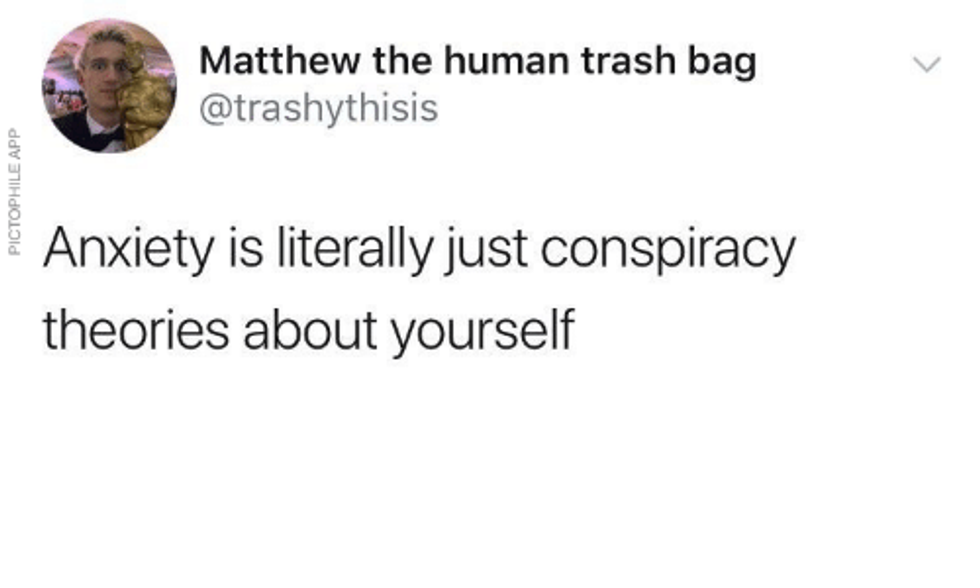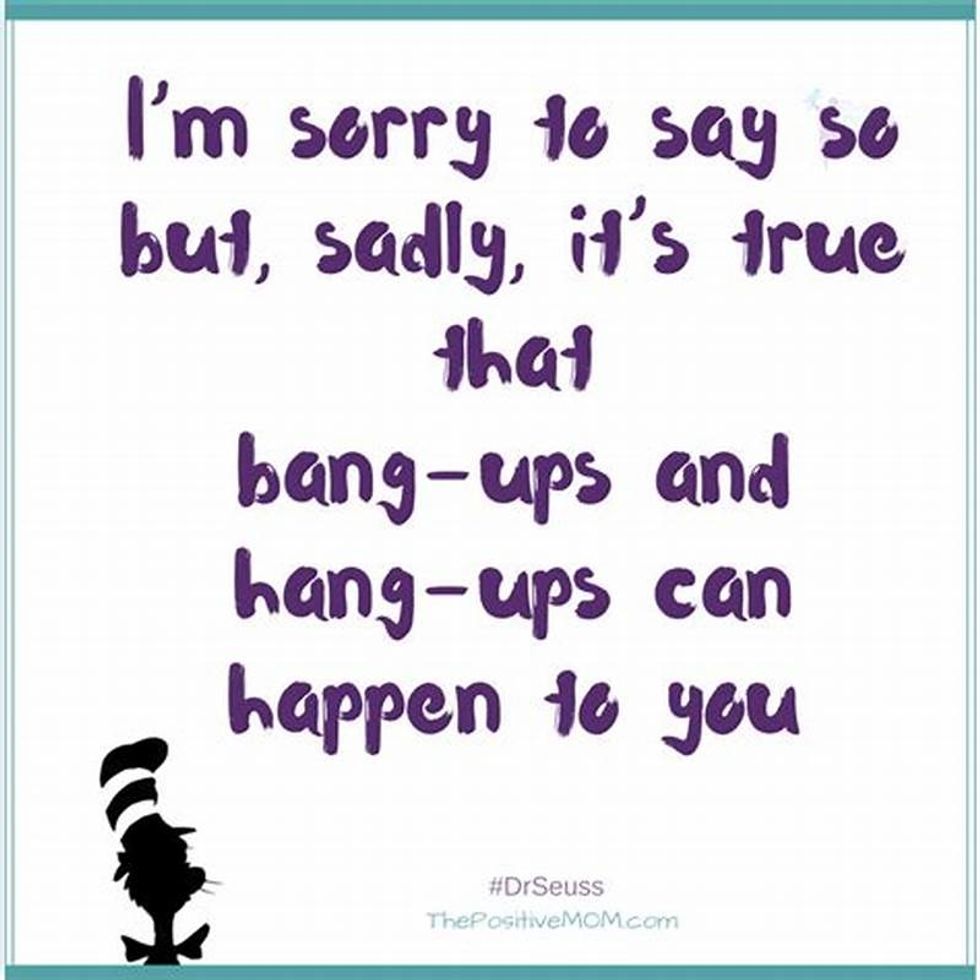Have you ever asked yourself, "What if they don't like me? What if I don't get this job? What if I don't find true love?"
Or have you ever just assumed, "I know I don't really make a difference. I know my friend doesn't like me as much as her other friend. I know I'm not that pretty."
If so, you've engaged in a thought experiment.
A thought experiment accepts as truth a specific starting point and asks questions based on that anchor. You take a theory or idea, posit it to be true, and ask questions based on it to sort through its consequences. It's a mental device intended to help you explore the merits of a theory.
Thought experiments have been around for thousands of years, even before Socrates. We've all probably heard of Schrödinger's cat, even if we don't know what all the fuss is about.
But why do we care about some dead Austrian physicist and his ideas about quantum indeterminacy? Well—we don't. (Unless you do, in which case...good for you.) But I do care very much about the ways in which we use negative thought patterns to adversely affect our lives—often completely unconsciously—and how utilizing thought experiments can break us free from their chokehold.
By realizing that when we're fretting over anxieties or making a difficult decision based on unconscious negative thought patterns, we can make the choice to reexamine our preprogrammed thought patterns and, perhaps, choose to create positive thought experiments for ourselves.

Anxiety disorders are a real and growing thing—and even people who don't have an anxiety disorder can experience heightened levels of anxiety. Our current automatic thought patterns will be most obvious during moments of anxiety or stress.
These thought patterns, constantly running in the background, actually began as their own thought experiments and were eventually repeatedly drilled into us by multiple sources: society, parents, personal perceived failings or insecurities, friends, lovers, even the media. No child is born believing themselves to be inherently flawed, misunderstood, undesirable, and alone. But at some point, that child had the horrible thought: "What if they don't like me? What if they don't want to be my friend? What if Mom doesn't care? What if I am all alone?", and with repetition, these negative thought experiments became automatic reactions: They don't like me, they don't want to be my friend, my parents don't care, I am alone.
If you find yourself believing that your significant other won't find you as attractive as other people, that's a preprogrammed thought experiment: you just assume, "I'm not as attractive as ____" and operate based off of that assumption. If you meet a new friend or go out on a date and hold yourself back from trusting them with personal facts or your real self because everyone, at some point, leaves—you're assuming that, well, they'll leave. Or maybe you hold yourself back from trusting people because once they see who you really are, they won't want to stick around. That's an automatic assumption that you are inherently messed up—and that you are messed up more so than other people.

When you walk into a room, do you assume that no one (or not many people) are really interested in seeing you? Maybe you think, it wouldn't make a difference if I were here or not? When you meet a new friend and they don't text back quickly or reach out to you as much as you do to them, do you think you're not that important to them? Do you assume no one would really understand your nerdy side or your favorite book or how you relate to music?
These pre-assumed thoughts are I'm not important. No one cares. I don't make a difference. No one understands me. I'm all alone. These all started as thought experiments by a child: "What if I'm not important? What if they don't care?" Babies don't even know other people exist (as people) when they're first born. All of this existential despair and self-doubt is something we discovered, not something we were born with.
One of my automatic thought patterns is that no one understands me—my favorite poems, or books, or songs; why I do what I do, and all the complexes and failures and strengths that make me up. No one sees me. The natural consequence of such an isolating belief is that I've often felt lonely all my life, even when surrounded by incredible and intimate friendships. My starting point was that no one understood me, and so I was always surprised when someone did.
Last year (2018), I was done with being lonely all the time, even (or especially) when surrounded by people. I still didn't know how to resolve loneliness, or how to not feel alone…especially if I was. But one of the antidotes to loneliness, for me, was love: experiencing and creating connections and warm affection with other people.
So I took on a thought experiment: what if (when I walked into a room with new people and old friends), rather than assuming that most wouldn't understand me or see me and that I was alone—what if I assumed that I already was in relation to everyone in that room? What if people did see me? Did care about me? Would get my favorite poem?
Because of this thought experiment, I started so many interactions on a basis of warmth and trust, rather than holding back and waiting to see if someone really got it. (Whatever "it" was.) I began relationships already several steps ahead: warm, and connected, and seeking for connection points rather than assuming we didn't have any until proven otherwise.
What are your automatic assumptions about yourself or your interactions with other people? Your well, this just is the way they are assumptions? What would happen if you reframed your thoughts to ask, "what if…", and took on a positive pre-assumption? Stepping away from our preprogrammed negative thought patterns by asking ourselves, "What if they actually DO care, and maybe just don't show it in the way I prefer? What if I actually AM beautiful? What if I do make a difference? What if my friend DOES care (and maybe just doesn't show it in the same way I do)?What if they actually DO love me?"

Moment of truth—maybe you AREN'T as objectively attractive as other people. Maybe that person won't understand your favorite song, or your favorite poem—or you. Maybe that friend will drift away, that lover will leave you. Maybe your parent is neglectful or isn't around. And yes, maybe sometimes, you will be very, very lonely.
The point about thought experiments is not that they're true. I'm going to repeat that: the point is NOT that these thought experiments are true. In fact, they may often not be true whatsoever. (I mean, can we ALL be the most attractive person in the world? According to Syndrome in the Incredibles ["When everyone is super, then no one will be.] —no.)
The point is to see how your automatic thought patterns are affecting your life—and how a thought experiment could have untold positive consequences, even if it's not true. Even if you aren't the most popular person, imagine the emotional difference between walking into a room and saying to yourself, "No one really wants me to be here," as opposed to walking into a room and saying, "I care about every person in this room. I want to make every person in this room smile. Everyone in this room does care, about me or someone else, in one way or another." Even if you're not the most attractive person, imagine the difference between, "My date will never find me attractive," and saying, "I have beautiful and expressive eyes. I love how strong or how healthy my body is. I really like how my hair looks today."
Have I actually met more people this past year who have understood me? Have I actually been seen by more people? Have I really met more people who have gotten Rothfuss and Poindexter and Hozier and Raymond and Lewis—and me?
I don't know. But what I know is that by using my loneliness thought experiment—by asking myself positive what-ifs instead of starting from my predetermined negative assumption—I have been far less lonely in 2018 than I ever have been in my entire life.
Take one of your negative thought patterns and construct a what-if thought experiment based on countering it: what if I brought meaning to others, what if my life had value, what if I could do it, what if I was beautiful. Each time you find yourself living into your preprogrammed pattern, ask yourself your what-if. Start taking it as a thought experiment: pretend it's true, and just act like it is.
Who knows—eventually, it may become true all on its own.



















